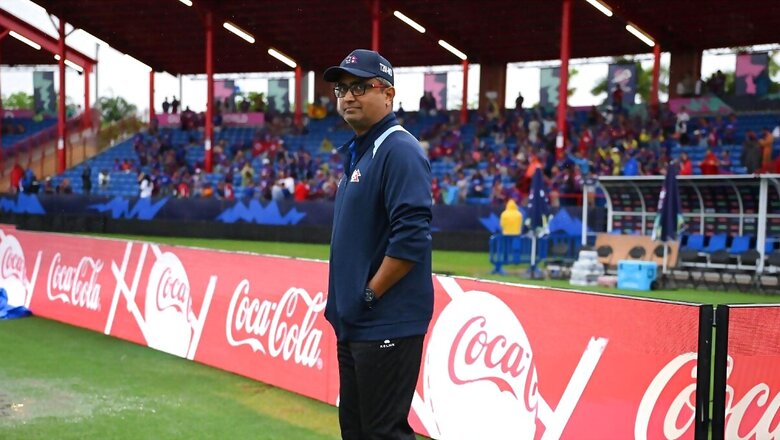
views
The 2024 edition of the T20 World Cup saw India end the long wait for an ICC title, and also bore witness to plenty of other associate nations punching above their weight, announcing themselves at the biggest stage. Amongst them lay Nepal.
Playing only their second T20 World Cup, precisely after a decade, Nepal fought hard and troubled the likes of South Africa and Bangladesh, but were unable to land the knockout blow. While they could have created history by defeating the Proteas, their lack of experience in handling crunch situations saw them succumb to the pressure and lose by one run, owing to a run-out.
Head Coach Monty Desai, who has been guiding Nepal for over a year, said that the lack of experience on the big stage, and “getting lost" in crucial situations was the primary reason behind their failure to make it to the Super 8s.
India Squad for Sri Lanka Tour Live Updates: Suryakumar Yadav, KL Rahul Favourite To Lead In T20Is And ODIs
In an exclusive conversation with CricketNext, he also spoke about how the side missed their star player Sandeep Lamichhane, and more.
Edited excerpts…
Nepal made their debut in the T20 World Cup in 2014, but made their comeback almost after 10 years in the 2024 World Cup. So how do you look at Nepal’s World Cup campaign this year?
I pretty much was happy when they had qualified in 2014 as well, but the gap of 10 years probably was hurting them a lot. I think some of those boys, probably, are not with the squad anymore. But they were all aspiring to be seen on the world stage every two years or every three years when those qualifications come.
For them to qualify for this bigger World Cup with 20 teams participating, with the sport taken to USA, and considering that, this small nation was hungry to be seen at the highest platform, it was very fulfilling. Having said that, we went in the World Cup with a very specific goal to qualify for Super 8s and then take challenges from there. The disappointment stays.
Nepal was grouped with teams like South Africa, but was also expected to compete fiercely against Bangladesh, and Sri Lanka. So what were the discussions like before the start of the World Cup?
One of the things, which we did proactively, and I must say and thank CAN management and the national government, because they all came together and supported this vision of competing well in the World Cup. We were given the room and we travelled a month early on that side of the world to prepare. So the planning to ensure that when that the stage comes, we are ready for it.
I thought a lot of planning was if the bowling department is in place. The main discussion was the competitiveness of higher ranked teams to instil that belief that it is the shortest format and we have seen in the past as well, the associate teams have upset the designated Test teams and we wanted to be on the same journey.
The focus was on the first game against Netherlands. We have played them many times in our league and we were looking forward, because once you get that win then the momentum is on your side. If we had that first victory against Netherlands, and two points, it would have helped us to gain momentum and push forward.
You lost to South Africa by such a small margin. It seemed like Nepal was winning that game before that bizarre run out of Gulshan Jha. What was going through the minds of Gulshan Jha and the players out in the middle in those crunch situations where it seemed like Nepal was just about to win the game?
It is difficult to explain, but when you talk about bizarre run out of Gulshan Jha, the bizarre dismissal of Dipendra Airee against [Tabraiz] Shamsi in that (18th) over where we needed run-a-ball, was turning point.
He just wanted to tap the single on the leg side, but a faintest of edge, bottom of the glove and with de Kock taking that catch; I felt that was a bizarre dismissal, which derailed the whole chase. At that junction, when you lose a batter, whom you believe is your best finisher in the team; I think somewhere it kept in a little bit of fear or doubt for the next players who walked in [to bat].
That is the way I am assuming from outside. Most of these boys were playing their first World Cup so the bigger stage also starts you know having an effect on your mind and I think those are the kind of things, which happen.
When we had a conversation later on, not the next couple of days, but just after a week, when he (Jha) was settled at home, he did share with me that he felt the ball must have deviated somewhere else and he was pretty much trying to cruise inside [crease].
I had to remind him that he forgot one of the rules, which was he was running on the pitch. So even if he had crossed the line, I know that South Africa had already appealed, so I had to give him that consolation that, ‘you could have crossed the line, but even then you would have been given out’. They also need to be aware of leaving the pitch and run from the side.
So how much do you think, experience mattered in such a situation?
It would have made it much easier for them to win from that kind of situation if they were more experienced. I mean, playing formidable sides regularly definitely helps. And playing those formidable sides in their home conditions obviously adds to the experience and the confidence. But for this tournament, I would still say that we are all accountable.
You know, we were sometimes blank and our batters, especially when they were batting in the centre, it seemed that they did not have a plan. But we had always discussed about the opponents, or the bowlers and what kind of shots will work and what are the areas that they need to be more tight with. Taking that all into account, I think we missed very important moments in different games.
Against South Africa, we kept wickets in hand. We paced the chase very well. Anil and Asif were looking like they were both in and they would finish the game. So even there, the awareness of a player, I mean, inexperience, yes, but the awareness of a player knowing that they both are in, but for Anil to play that little expensive shot against [Aiden] Markam did also had an impact on us because they both were set.
I am sure they will reflect on this and next time around make it even better for themselves.
Quite a bit of a hard break there, because you had a very good chance of qualifying to the Super 8s. After that loss, what was the conversation in the dressing room?
We could have scripted history, it was not easy to swallow and not easy to manage emotions, but we very much deliberated together that let us think that we have crossed the line and kept our energy up because passion brings in energy and if you want to define your passion, that’s the way.
Again, one-half of the game against Bangladesh, we put up the show, and I thought that when we have a mark in the dressing room we were up for it.
We wanted to cross the line because we wanted to leave a message. The new ball sometimes is unsettling and we could see that on that day I was also pleasantly surprised with the way the Bangladesh fast bowlers came across that power play, and obviously, that did it as well.
If someone analyses it systematically, in the 15th over, we were equal in terms of runs and wickets. So which means that almost out of 40 overs, for 35 overs, we matched them. It was the last five overs where they scored some runs with their last two wickets and we did not score at all with five wickets.
Did Sandeep Lamichhane’s absence hurt the side in any manner?
There was quite a bit of confusion because of the visa delay due to which he could not join the team in USA.
I can talk about management side of it. It had an impact, I will not deny. A lot of decision-making were under time constraints, and we had to find ways out to keep working around it. To announce a squad of 14 without Sandeep with the hope that he will be able to get across and then for him not to come over to the [United] States. I mean, we wanted to maximize the resources and he is a champion player. So to have him in the playing 11 from game one makes a difference because his experience of playing on that side of the world, he is a senior pro in the team.
What he speaks in the dressing room also has an impact. So not having him right from the start, forget the World Cup, but not having him right from the start of build up for the World Cup also, [was unfavourable].
We had to wait for the legality. So unfortunate very unfortunate, but no force can control that. The CAN management did their best. We know that ICC also pretty much supported the right calls which were done professionally and legally.
How do you think of Nepal cricket going forward; and what do you see in the future for Nepal cricket?
I count my days. From 28 January until now, every day, I have tried to live certain moments and make my notes as part of my story. I believe in building the narratives. I think the cherished belief; the deep belief is still there with me, with the unit, and with other leaders who support us.
I have not gone back to Nepal, so I don’t know the other things. But the future for Nepal cricket is very bright. I think they have shown consistently that they can at least compete. In all the three games, we did not cross the line, but many cricket experts—who have sent a message on a personal note, and whatever I have heard on air—pretty much have acknowledged that they know this team can compete.
One of the things I am looking forward to is to have a lot more professional grounds. We have certain pitches that we bat on; but if we can have the pitches laid on as per international standard with covered-up grass, proven lateral movement and other things, the surfaces which can challenge you a little more, I think that’s the area that we’re going to get better at.
In the long-term future, with all the neighbouring countries having designated Test status, and one small country, which is left, is Nepal. With everyone’s support, it will make a difference.













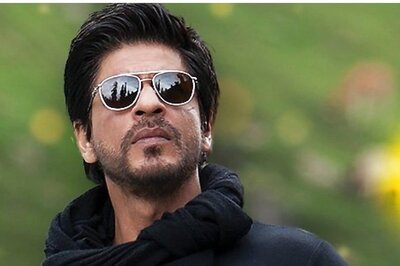
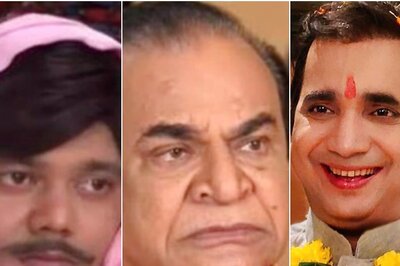
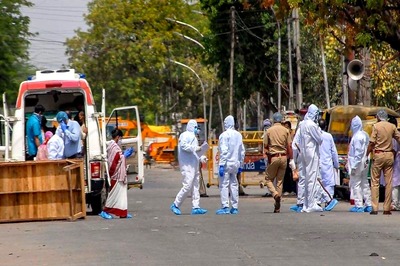



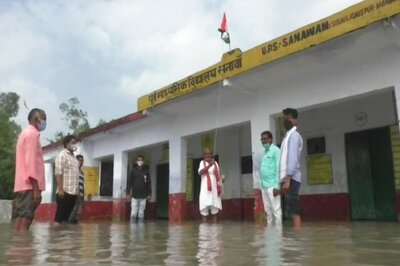
Comments
0 comment